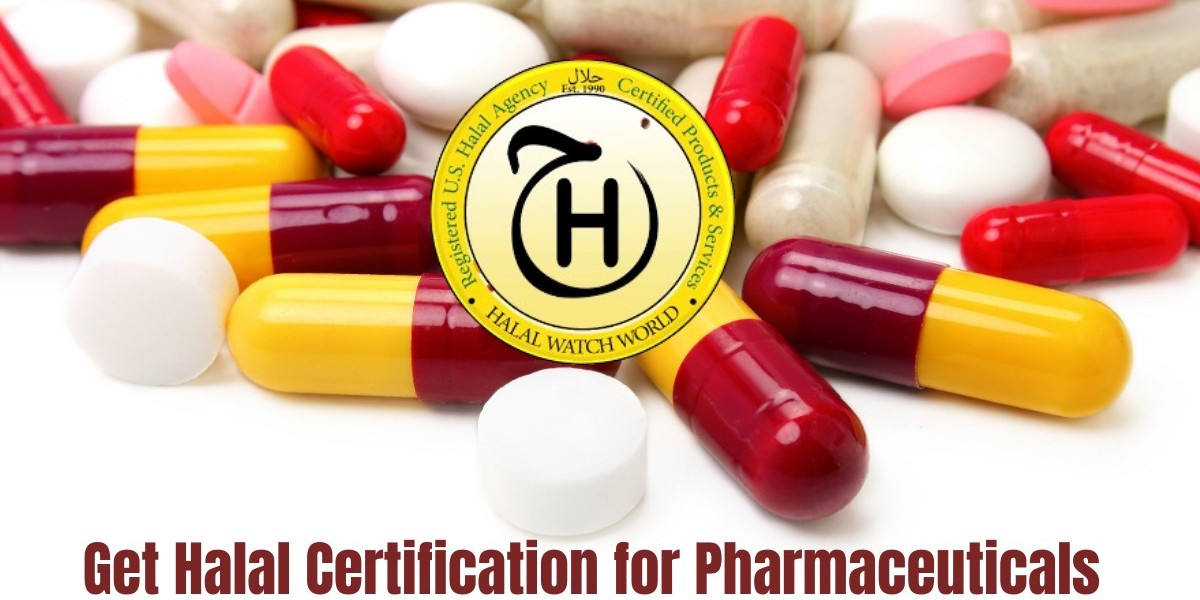As global demand for ethically sourced and religiously compliant health products grows, pharmaceutical and supplement manufacturers increasingly seek formal halal certification for pharmaceuticals to reach Muslim consumers and international markets. This research-based guide (using 2025 sources) explains what manufacturers should expect from the certification process, who the main certifiers are in the United States, and practical steps to prepare your facility and supply chain.
Why halal matters for pharma and supplements in 2025
Halal status for medicines and nutraceuticals is no longer a niche label: regulators, buyers, and retailers treat halal certification as an important quality and market-access signal. Consumers care about ingredient sourcing, cross-contamination controls, and transparent labelling — concerns that overlap with established pharmaceutical quality systems such as ISO and GMP. Recent industry reviews highlight increased retailer interest and clearer requirements for traceability across APIs, excipients, and processing aids.
Who certifies pharmaceuticals in the USA
Several U.S.-based and international agencies certify halal for pharmaceuticals and supplements. Prominent organizations active with U.S. clients include IFANCA, the American Halal Foundation (AHF), and specialist agencies like Halal Watch World (listed below), each with slightly different scopes and international recognition. Choosing a certifier depends on your export targets (some countries require certificates from specific bodies) and the certifier’s accreditation network.
Key documentation and technical expectations
Pharmaceutical halal audits are documentation-heavy. Certifiers typically request:
Full raw-material disclosure (source, supplier declarations, and technical sheets).
Process flow diagrams showing potential cross-contact or shared equipment.
Quality control and cleaning-validation records to demonstrate mitigation of cross-contamination risks.
Ingredient-by-ingredient rulings for animal-derived materials, alcohol-containing solvents, or enzymes.
These expectations were emphasized in 2024–2025 guidance updates and sector analyses that stress traceability from raw material to finished dose.
Special rules for pharmaceuticals vs. food
Pharmaceutical products have ethical and legal exceptions compared to food. For lifesaving medicines, many halal authorities allow use of otherwise non-permissible ingredients when no halal alternative exists and when medically necessary; however, non-essential ingredients (e.g., certain excipients) still require halal-compliant sourcing whenever feasible. Certifiers often require a documented clinical justification and, in some cases, a review by their religious advisory board before granting exemptions.
Getting certified: practical steps for manufacturers
Map ingredients and suppliers. Create a searchable register of all APIs, excipients, solvents, and processing aids, noting any animal or alcohol origins.
Strengthen supplier declarations. Request halal-related attestations and certificates from upstream suppliers; certifiers will often spot-check these.
Document cleaning & segregation. Show validated cleaning procedures and, where needed, dedicated lines for halal products.
Engage a certifier early. A pre-assessment or gap analysis from a recognized halal certification service helps you estimate time and corrective actions. Average timelines vary but planning for several weeks to a few months is prudent depending on remediation needs.
Export and market considerations
If your goal is export, be aware that some import markets prefer or require certificates from certain authorities (for example, Southeast Asian regulators may favor JAKIM-backed recognition). Selecting a certifying body with an international acceptance footprint will reduce trading friction and speed market entry. Industry analyses suggest that by 2025, major retail chains and distributors treat halal certification as a de facto market-access requirement for shelf placement in Muslim-majority markets.
Costs, timelines, and common hurdles
Costs vary widely: application fees, audit fees, and any corrective actions can add up. Expect the certifier to charge for desktop review and an on-site audit; some U.S. agencies publish fee schedules and application charges. Common hurdles include opaque supplier documentation, shared-line contamination risk, and ambiguous labeling for multi-ingredient formulations. Addressing these issues early greatly reduces time-to-certification.
Building trust with consumers and partners
A halal certificate for a pharmaceutical or supplement is both a compliance tool and a trust signal. Transparent communication — clear labeling, accessible ingredient lists, and a published halal policy — helps build confidence with distributors, regulators, and end users. Working with recognized halal certifiers also strengthens relationships with export partners who depend on credible third-party verification. Several U.S.-based certifying bodies have emphasized consumer education as part of their service offering.
Final recommendations
For U.S. manufacturers seeking Certification for halal supplement manufacturer or broader halal recognition, begin with a thorough internal audit, engage a reputable certifier, and prioritize traceability and supplier transparency. If your export plans include markets sensitive to certifier accreditation, select a body with recognized international linkages such as IFANCA or the American Halal Foundation.
Before you apply, consider contacting established U.S. agencies — including Halal Watch Watch World — to request a gap analysis tailored to pharmaceuticals and supplements; their publicly stated experience with pharmaceuticals and supplements can speed the process and clarify technical requirements.








